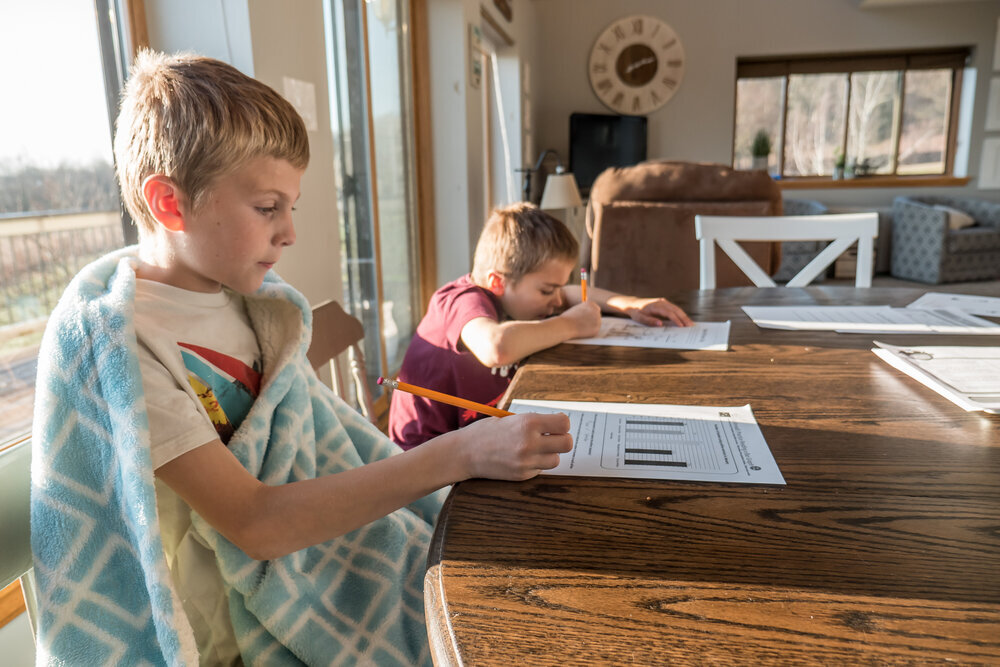Parenting & Social Distancing: 7 Tips
While some children have taken the stay-at-home order as an early summer break, as a parent you are likely worried about how to homeschool and care for your children, and thinking about what to do when they (and you) get cabin fever. Here are 7 specific suggestions for parents as they are thrown into this new world of “breakless” parenting during these times of social distancing.
1. Get your children back on a working schedule.
The interruption of normal routines has created many challenges for families and children, in particular. But re-establishing a regular schedule for your children during the week will help them find some normalcy and will make the transition to “mandatory homeschooling” easier. Your children will begin to thrive again with a good routine.
2. Create a simple reward system for your children.
In an earlier post, I recommended adults create a reward system for themselves to help them keep on track. This same recommendation applies here as well, if not more so. Once they have finished their school work and chores, find a way to reward them. This will ensure that children finish their work, but if they choose not to, it will help them learn of the consequences of missing out on some good rewards. Just make sure you find something motivating enough for them (like video games and other electronics).
3. Plan out the consequences of “bad” behavior in advance.
With all of the added stress heaped onto you as a parent in this difficult time, it would be wise to plan out the consequences of “bad” behavior in advance so that you don’t have to think of them on the fly. You can even tell your children of those consequences ahead of time. If you have a partner to help you parent, you should come up with the consequences together but NOT designate a permanent “consequence” giver, as this will taint the relationship of your children with that parent. As in suggestion 2, remember to pick consequences that will impact them.
4. Know when to take breaks.
This suggestion not only applies to your children and their own school work and chores, but also for you as a parent. It is easy to “burn out” with your parenting when you have to do it 24/7. But in order to prevent this burn out, you will need to be aware of your own emotional reserve level. If you are running on low in your emotional reserve, take a break yourself- go get some fresh air, make a call to a friend or family member, or distract yourself with some funny YouTube videos, etc. You can even place a consequence on hold (letting your child know you will take a break and come back with their consequence shortly), just so that you can keep your emotional regulation in check.
5. Take advantage of the added “family time.
It is increasingly important for all in the family to continue having experiences of healthy interpersonal connection during this time of isolation. Take more time to find ways to connect with each other as a whole and with one-on-one relationships within the family. Play more family games together, have more meaningful talks with your children and help them connect with each other.
6. Have more family meals when possible.
The family that eats together stays together. Research studies have actually shown the benefits of consistent family meals in improving family cohesion. Planned family meals together will not only benefit family members to eat more healthy but can provide opportunities for parents to check in with their children.
7. Be patient with each other and yourself.
Understand that with tensions higher and with prolonged time together it becomes easier for family members (including parents) to lose their temper with each other. Your children might lose their temper quicker with each other, but as you respond with more patience in your voice, you will teach them by your example (much more effective than teaching by command). You will likely lose your patience with them easier as well because you are human. It’s okay, just keep trying. It is also okay to apologize to your children if you lose your cool with them, this will teach them great lessons of humility and forgiveness.

